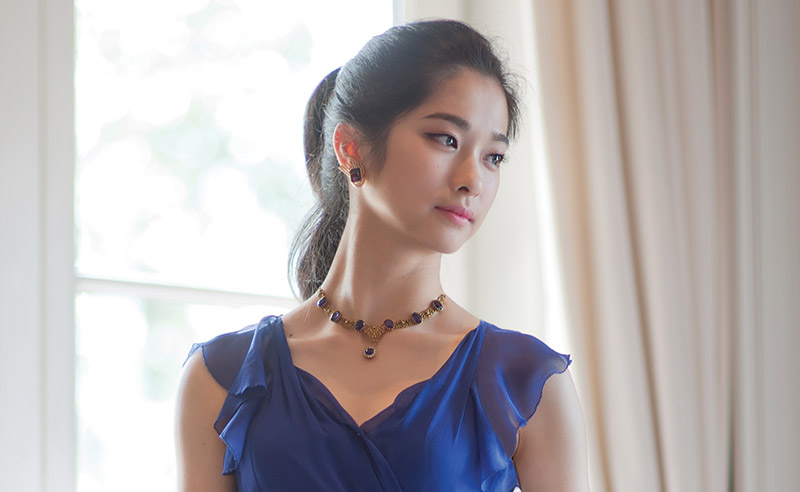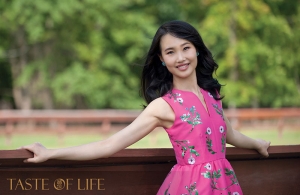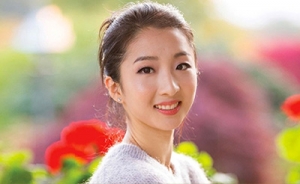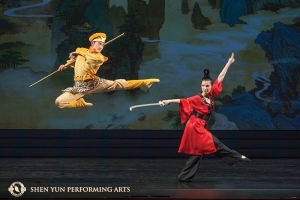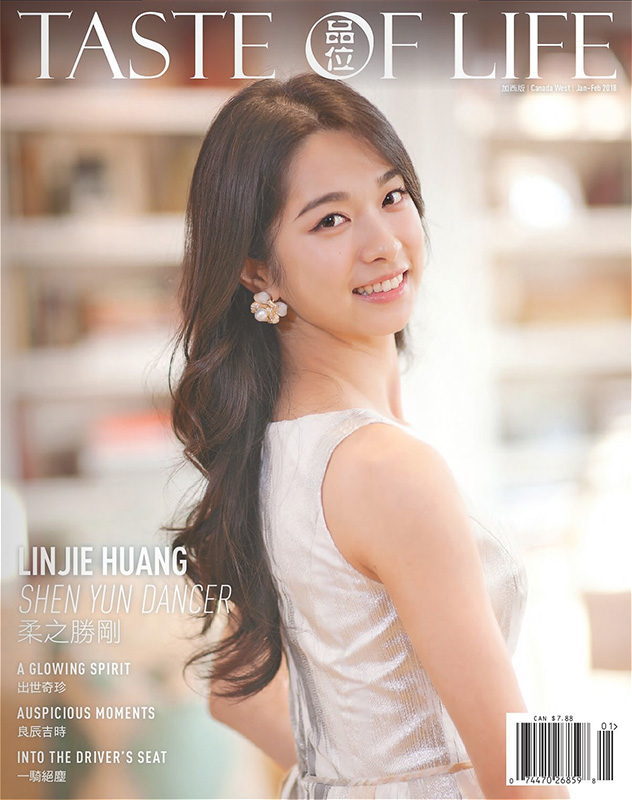
Taste of Life Magazine is France and Canada's leading bilingual luxury lifestyle magazine in Chinese and English, dedicated to bridging East and West through a shared appreciation for the beauty and elegance rooted in both traditions.
In this past issue, TOL featured Shen Yun lead dancer Linjie Huang. Huang has been with Shen Yun since 2009. In 2016, she won second place in New Tang Dynasty Television’s International Classical Chinese Dance Competition (adult female division). Huang is touring with Shen Yun International Company across east Asia and Oceania this season.
From TOL’s Strength In Softness
Shen Yun Performing Arts is a transformative experience, which, in many ways, transcends Chinese culture. From the audience members to the dancers gliding across the stage, the performance touches people in different ways, imparting insights that are familiar, yet forgotten. For lead dancer Linjie Huang, Shen Yun’s seed of self-exploration was planted even before she knew she wanted to dance. Her story of fire and water shows not only the company’s power to inspire, but its ability to guide her to who she was truly born to be.
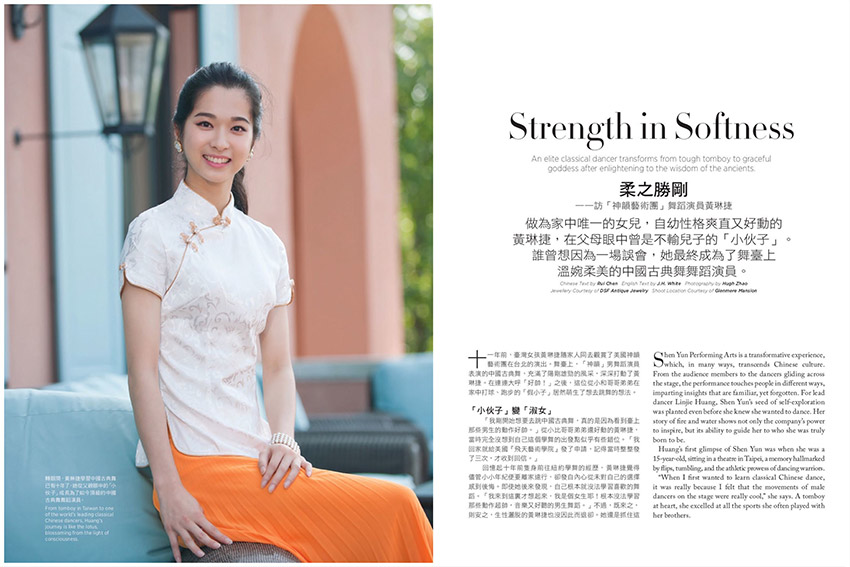
Huang’s first glimpse of Shen Yun was when she was a 15-year-old, sitting in a theatre in Taipei, a memory hallmarked by flips, tumbling, and the athletic prowess of dancing warriors.
“When I first wanted to learn classical Chinese dance, it was really because I felt that the movements of male dancers on the stage were really cool,” she says. A tomboy at heart, she excelled at all the sports she often played with her brothers.
After the show, her father asked her if she’d like to dance, almost a rhetorical question as he looked upon his beaming daughter.
“I applied to Fei Tian Academy of Arts once I got home,” Huang says, referring to the New York-based training academy for many of Shen Yun’s finest dancers. “I remember I finally received a reply after sending the application three times.”
When she arrived in New York, eager to learn the explosive techniques of the boys, she was confronted with a different reality.
“I suddenly remembered that I’m a girl, who can’t learn those cool movements of the male dancers,” she says.
“When I came to the U.S., even though I wore a ponytail, many people still thought I was a boy,” Huang says. “We have to tie our hair in a tight bun for training. So when we’re not training, everyone will quickly loosen their hair to relax the scalp, but I was not used to having my hair untied.”
Though her transformation was gradual, her trip home in 2014 to perform with Shen Yun was a revelation for her family.
“My relatives and friends all came to see our performances,” she says. “With the exception of my parents, no one could recognize me on the stage. My dad even said he finally saw ‘a daughter’ on the stage.”
A decade has flown by since Huang started dancing, and her appreciation for Shen Yun has grown as rich as the unforgettable experiences she’s had travelling and inspiring the world with classical art.
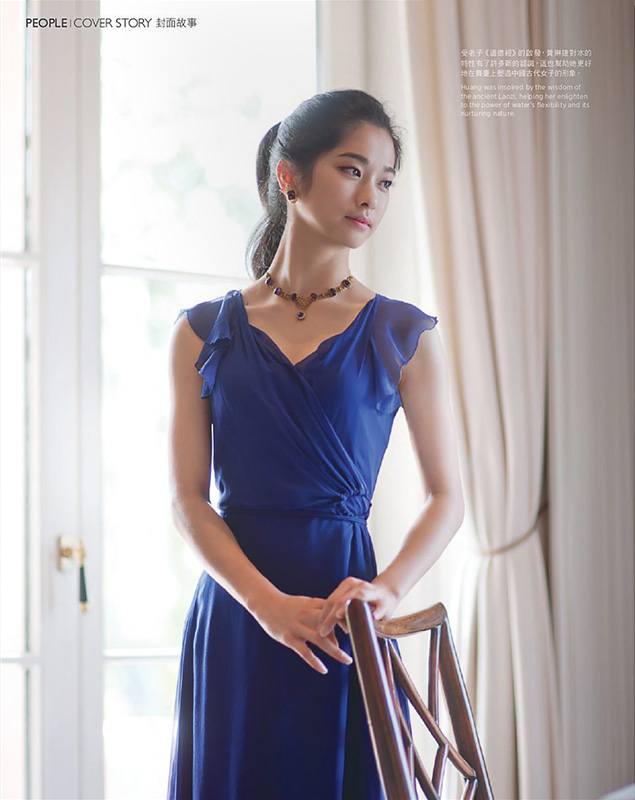
It’s hard to imagine Huang as she described her old self, in light of how she carries herself with such easy grace — a transformation that truly began with new understanding.
“In the past, when people said that ancient women were virtuous, wise, and gentle, it seemed they were incapable of doing anything,” she says. “But it’s not so, in fact. There were women like Mulan and Mu Guiying — they could do what men could do for their father or country. They had the ability. When they’re not needed, they won’t show off, but be humble. However, when they are needed, they’ll stand out.”
People say women are like water, which appears soft and weak. But the ancient sage Laozi sees things differently, describing water as the most powerful in the Tao Te Ching. “Water easily benefits all things without struggle,” wrote Laozi. “Nothing in the world is softer than water, yet nothing is better at overcoming the hard and strong. This is because nothing can alter it.”
Huang’s journey with Shen Yun has helped her grasp the profundity of this ancient wisdom.
“Water is humble,” Huang says. “It can be adjusted to all environments and topography, always silently nourishing others. Water is the softest and weakest, but it can subdue the strongest as well. If modern people don’t understand these principles, they’ll misunderstand ancient culture, thinking that women always depended on others. In fact, a woman has a woman’s strength, and should be able to take care of others better.”
Huang’s intertwined voyage of classical Chinese dance and personal growth is, like a river, still flowing. She says she eagerly awaits performing and moulding into new characters in this year’s brand new program.


